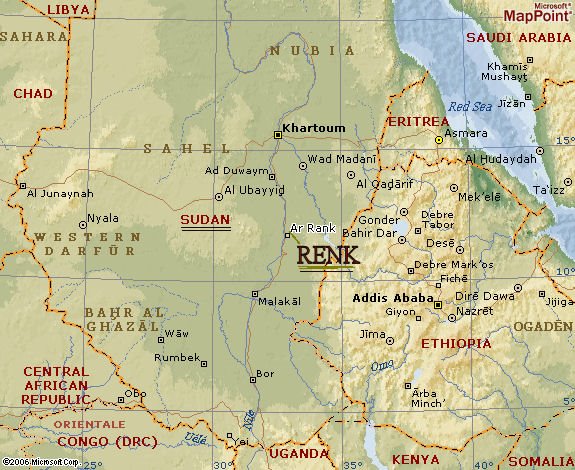July 9th Update from Renk, Sudan

Deborah, Phoebe's counterpart from Duke, sent this message from Sudan on July 9th:
Grace and peace to you in the name of our Lord Jesus Christ. So much has happened in the past couple of days that I hardly know were to begin. Phoebe Roaf (the other visiting teacher) and I have begun to entertain students at Father Joseph's home. Often one or two students will come and join us for lunch or dinner. The students come full of questions about American culture. In every meeting, marriage is a topic which inevitably arises. The students can not understand why Phoebe, who is in her early forties, is not married. Unlike in America, marriage is not a choice. Everyone, especially every female, gets married. Marriage and children are completely intertwined with Sudanese Culture. Most of the people here are economically impoverished. They have very little in the way of monetary assets. Consequently, children serve as Sudan's Social Security system. When a couple is young, they care for and feed their children. When the couple becomes old, it becomes the responsibility of the children to take care of their parents.
Our conversations often quickly turn to the experiences of the students. Almost all of my younger students have lived in refugee camps and have served as soldiers in the war. Many of the students left the Sudan when they were fairly young for the country of Ethiopia. While they were there, a military coup in Ethiopia caused a shift in governmental powers. The new government forcibly made the Sudanese children leave Ethiopia and return to the Sudan. The civil war was still raging upon their return, so many then made another long journey to a refugee camp in Kenya. Some of my students who were older by then did not go to Kenya. Instead, they had to stay in the Sudan and fight. Some of my students spent up to ten of their most formative years fighting in the bush (as they call it) of Sudan. While there, times were difficult. Food was scare, disease ran rampant, and further education was unimaginable. Although all of my students are very bright and eager to learn, some of their lack of formal education can make things difficult for them now in the classroom. They have been through so much, and yet they remain enthusiastic and attentive. This is very encouraging to me. Despite difficulties, they have already learned so much. I already have a great place in my heart for my students and for the people of the Sudan more broadly. My time here is passing so quickly. I wish I did not have to leave. I see so much potential in my students. Two weeks has only been enough to open a window in their minds. We have only scratched the surface of the Greek language and so many other things. I have only begun to develop relationships with the students. They long to learn. They long to know Greek, and Hebrew, and so much more. They long to have adequate training for their work in future parishes. They long to provide education to those who have none. I can hardly imagine where some of these young men would be today if they hadn't had so many setbacks.
The setbacks have been great in the Sudan, and yet ironically the church continues to grow. Yesterday I had the great privilege to preach at a nearby parish in Renk called St. Luke's. The church building is very modest. The walls were made of bamboo tied together, and it has a thatched roof on top. The congregation was also fairly small. Perhaps 70 persons crowded together into the building, many of which were youth or children. The service included many introductions, many small speeches of thanksgiving to the congregation, and several songs. The services were conducted in two tribal languages, and my sermon was translated into Arabic. Persons of many different tribes live in Renk, but Arabic functions as a universal language which everyone can understand. Many people are illiterate. Often the priest or pastor in charge
of a congregation is the only person who can read and write. All of my students studying at the Bible College are fluent in at least two different languages, but in many of the rural parishes even the pastors can be illiterate.
I have many more things that I wish I could tell you about, including my boat trip on the Nile River! But my time is running short so I will have to end this e-mail more abruptly than I would like. Thank you for your continued prayers for the people of the Sudan.
In the Love of Christ,
Deborah
0 Comments:
Post a Comment
<< Home